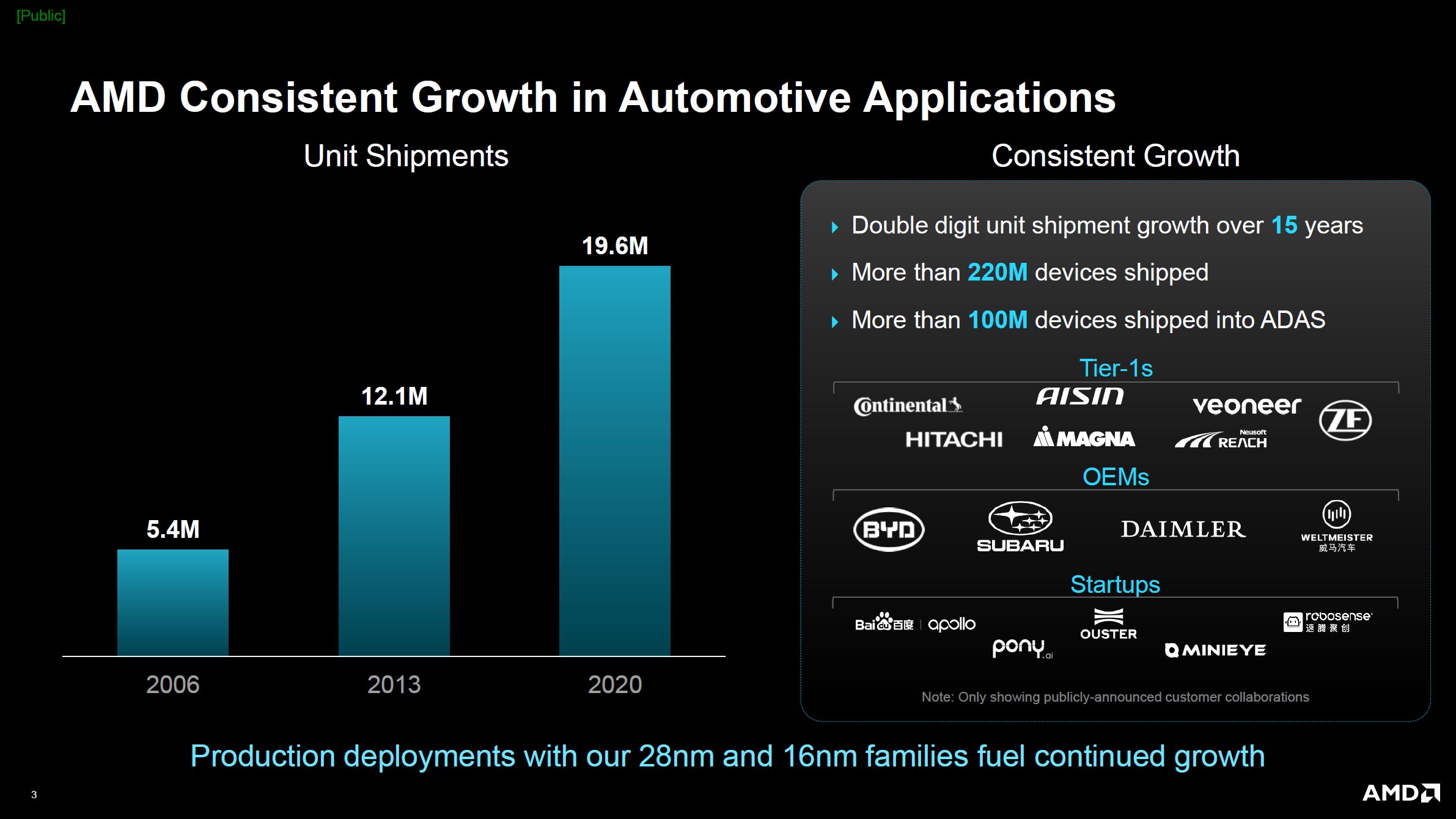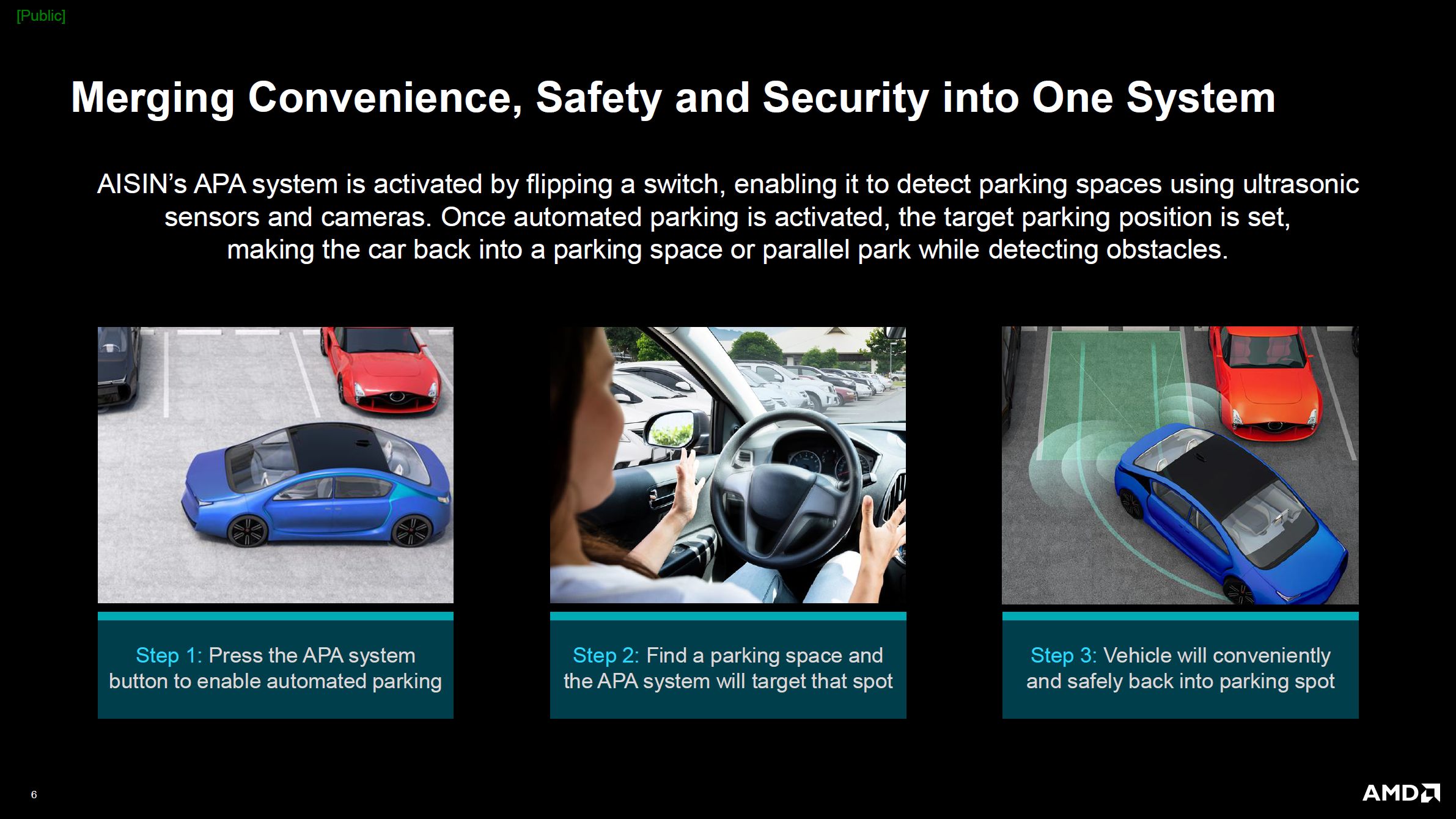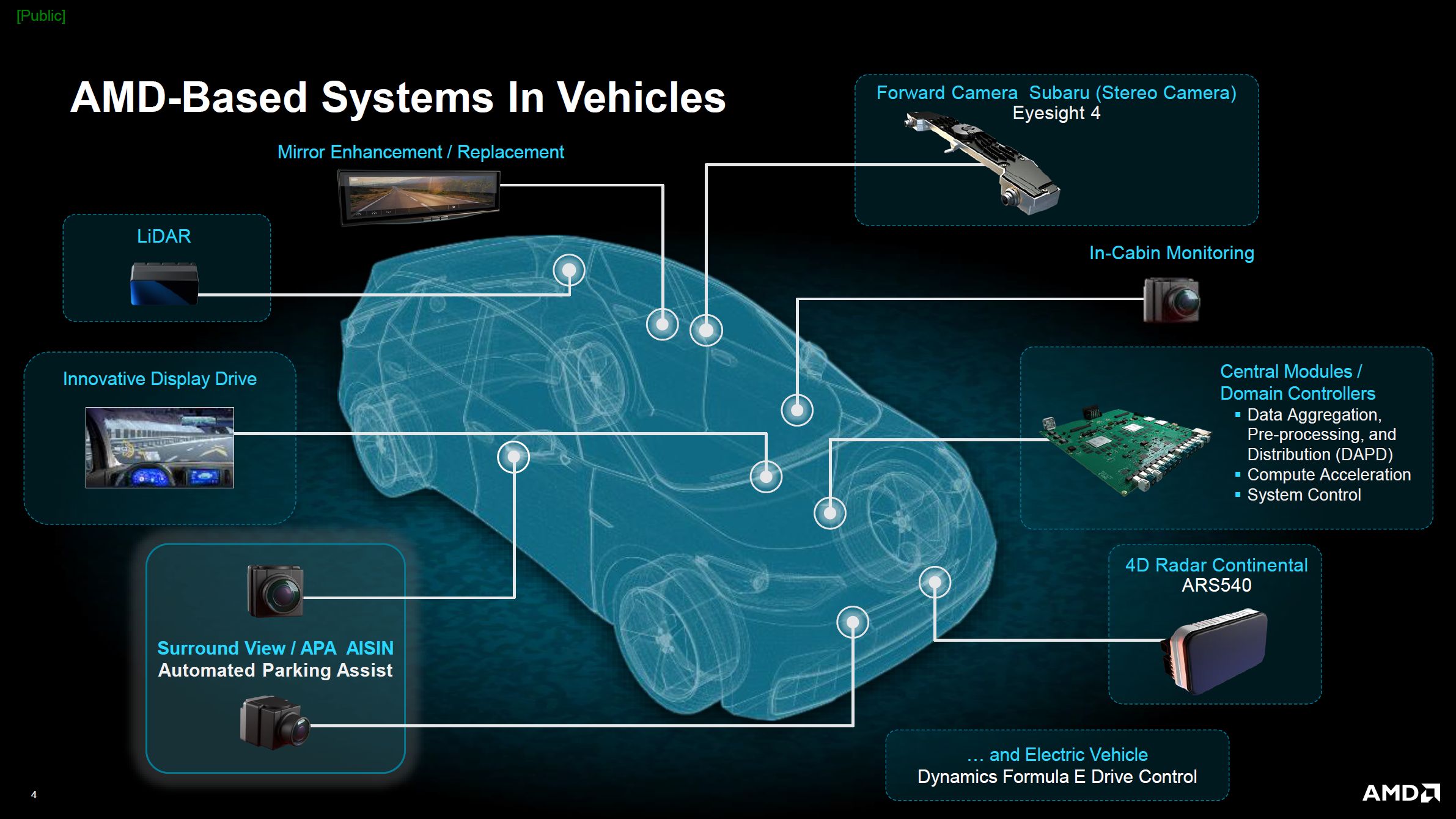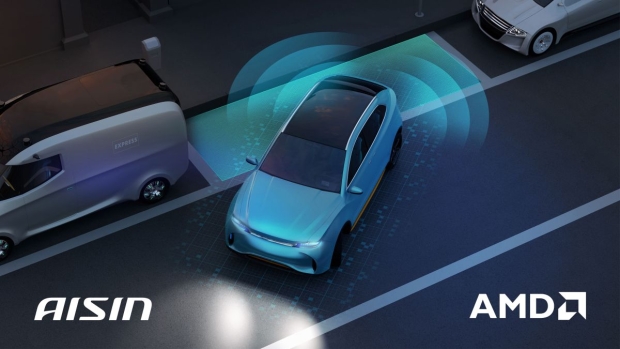In 2020, the unit shipment volume grew to 19.6 million, accounting for more than 220 million units shipped. More than 100 million devices are shipped in ADAS (Advanced Driver Assistance Systems).
Now AMD is ready to announce that a big player in the market, Aisin, is using its Zynq UltraScale+ MPSoC platform for the Automated Parking Assist system. Aisin is a member of fortune global 500 companies, and it is a member of the Toyota Group. As an OEM supplier, the company also supplies automotive parts to other companies, but traditionally they do a lot of work with various Japanese manufacturers.
Aisin automated parking for 2024 models
The AMD Xilinx Automotive (XA) Zynq® UltraScale+ MPSoC platform has been selected to power the Aisin Automated Parking-Assist (APA) system. The highly adaptable XA Zynq UltraScale+ MPSoC platform enables the next-generation Aisin APA system to detect pedestrians, vehicles, and free space efficiently and at extremely low latency. The Aisin APA system will begin shipping in the model year 2024.
Automated Parking Assist (APA)
The automated Parking Assist (APA) Market is projected to grow from 500 million in 2021 to twelve times higher global system market or 6.1 billion in 2028. The growth enables an extremely positive 52 percent CAGR (Compound Annual Growth Rate).
The Automated Parking Assist (APA) systems span various levels of vehicle autonomy. The standalone APA systems are typically found in level 2 or Level 2+, while centralized domain controllers include APA for level 4 & 5 vehicles. Asia is currently showing the biggest market growth, followed by Europe and the US.
By 2025 and 2026, nearly all premium vehicles will have some level of automated parking features, with the APAC region having the highest share.
AISIN's Automated Parking Assist (APA) system is activated by flipping a switch, enabling it to detect parking spaces using ultrasonic sensors and cameras. Once automated parking is activated, the target parking position is set, making the car back into a parking space or parallel park while detecting obstacles. It supports parallel parking too.
The focus is that the vehicle parks conveniently and safely. AISIN's Automated Parking Assist APA system combines vision and vehicle control. Ultrasonic sensors and cameras enable parking spot and obstacle detection. Four cameras are mounted around the vehicle for surround view, and 12 ultrasonic sensors enable parking guidance. Since parking spaces in Asia, the USA, and Europe are different, the APA will support a variety of parking spots for different markets.
XA Zynq MPSoC platform
The XA Zynq UltraScale+ MPSoC platform is deployed in the cameras within the Aisin APA system. It combines a high-performance Arm-based multicore, multiprocessing system with ASIC-class programmable logic containing custom co-processors that can be optimized to meet system needs, including a deep learning processor unit for convolutional neural network (CNN) processing.
The MPSoC enables machine learning-based scene segmentation and object detection for the Aisin APA system. The XA Zynq MPSoC platform delivers maximum processing efficiency. It is capable of offloading critical functions, such as graphics and video pipelining, to dedicated processing blocks to enable low-latency image processing.
The programmability part of the MPSoC makes AMD Xilinx solution stand up from various SoC camera suppliers. Zynq UltraScale+ MPSoC has the ability to reprogram parts of hardware, adding more efficient AI and algorithms, meeting the safety and new features in the future, simply via an update over the air.
For example, suppose NCAP (European New Car Assessment Programme) or the US National Highway Traffic Safety Administration safety performance assessment program organization upgrades the rating requirements in the future. In that case, AMD Xilinx solution has the ability to release a firmware and software update and address the new requirements. The SoC solution cannot change the hardware or the AI part in the hardware. The SoC competition can try to address new requirements and features in the software, making the new features slower than the ones designed to run natively on the SoC hardware.
The Aisin APA system uses four cameras and 12 ultrasonic sensors mounted on the vehicle to recognize the surrounding environment and calculate the driving route. The system then controls the vehicle according to the calculated route to park itself. In addition, the Aisin APA system automatically performs automated emergency braking in the event of a potential collision.
"Aisin’s APA system leverages complex AI and requires an SoC delivering high performance and low latency, which led us to choosing the AMD Xilinx XA Zynq UltraScale+ MPSoC platform,” said Morito Oshita, president, Chassis and Vehicle Safety System Company, Aisin Corporation. “Basic surround-view systems reduced some of the challenges of manual parking for consumers, whereas APA systems can now significantly ease the stress of parking in tight spots. We are pleased to start development and bring this solution to consumers.”
“As surround-view systems evolve from basic video stitching and graphic overlays that visually assist drivers, to cars now being able to use AI to park themselves — we see a huge opportunity to support the needs of this market with our adaptable Zynq platform,” said Hanneke Krekels, corporate vice president, Core Vertical Markets, AMD. “Aisin is leading the pack with its innovative approach, designing this APA system with the flexibility to adapt the specifications depending on the specific requirements of different automakers. This is a perfect example of how the adaptability of the AMD Zynq MPSoC provides an upgrade path to increased feature capability in future designs.”
AMD in Automotive
As the pace of innovation continues to accelerate in the automotive industry, the need for high-performance compute, accelerators, and graphics technologies is increasing. AMD is at the forefront of this inflection point, with the industry’s broadest line of high-performance CPUs, GPUs, FPGAs, and adaptive SoCs.
From powering in-vehicle infotainment systems to advanced driver-assistance systems, autonomous driving and networking applications where functional safety is of paramount importance, AMD provides carmakers with a one-stop shop for silicon and software solutions.

